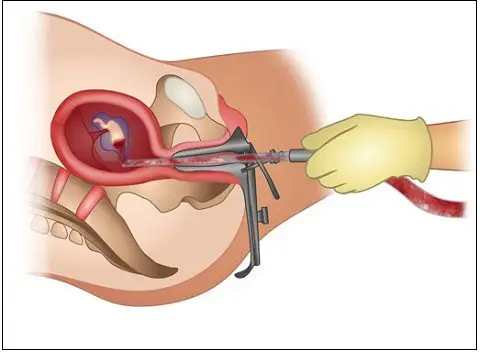What is a Surgical Abortion?
A surgical abortion is a procedure done to remove an unwanted pregnancy from the uterus. It includes the fetus , the placenta, the membranes, fluids and all products of pregnancy.
Surgical abortion is also known as vacuum aspiration or suction abortion.
Is it the same as a miscarriage?
No, surgical abortion is not the same as a miscarriage. Pregnancy loss is called a miscarriage when there is a spontaneous expulsion of the fetus and other pregnancy tissue without any surgical or medical procedure.
Is surgical abortion legal?
In India, a surgical procedure is legal up to the 24th week of pregnancy.
An abortion is also known as a Medical Termination of Pregnancy (MTP). In India, MTPs can be legally done under the Medical Termination of Pregnancy (Amendment) Act of 2021 under certain provisions. These are:
- A pregnancy may be terminated up to 20 weeks in the case of failure of contraceptive method or device.
- Opinion of one Registered Medical Practitioner (RMP) for termination of pregnancy up to 20 weeks of gestation.
- Opinion of two RMPs for termination of pregnancy of 20-24 weeks of gestation.
- Opinion of the State-level medical board is essential for a pregnancy to be terminated after 24 weeks in case of substantial fetal abnormalities.
- Upper gestation limit from 20 to 24 weeks for special categories of women, including survivors of rape, victims of incest and other vulnerable women (differently abled women, minors, among others).
- The name and other particulars of a woman whose pregnancy has been terminated shall not be revealed, except to a person authorized in any law that is currently in force.
Why is a surgical abortion done?
There may be various reasons:
- If you do not want to continue with the pregnancy due to personal reasons
- If you do not want a medical abortion.
- If the fetus has a birth defect
- If the pregnancy is due to rape or incest
- If the pregnancy is likely to be harmful to the mother due to medical conditions like heart disease.
How is the surgical abortion done?
Surgical abortions are done in an abortion clinic or hospital under sterile and aseptic conditions.
Steps of the procedure:
- You will be asked to lie down on the operating table.
- A sedative will be given to make you feel sleepy so that you do not feel any pain .
- Your feet will be placed in stirrups so that the doctor can get a good view of the vagina and cervix.
- A speculum will be inserted into the vagina and the cervix stabilized with forceps.
- The cervix will then be gradually dilated by inserting rods (dilators) of gradually increasing sizes.
- The suction tube will be inserted into the uterus and the pregnancy tissue including the fetus, the placenta are suctioned out.
- If the procedure is carried out under local anesthesia, you will feel a cramping pain at this time.
- The inside of the uterus will be gently curetted to ensure that no tissue has been left behind in the uterus.
- The instruments will be removed and the vagina cleaned.
- The feet will be removed from the stirrups and you will be able to rest comfortably .
- The entire procedure takes only about 10 -15 minutes but you will need to be in the hospital for about 4-5 hours for observation.

Are there any pre-operative tests I need to do?
Yes, you will need to get the following tests done:
- Urine or blood tests to confirm a pregnancy
- Blood tests for the blood group. If you are RH negative, you will need to take a anti-D injection before the procedure.
- A blood test for the Haemoglobin level
- A virology test ( blood test) to check for any viral infections.
- If you are not sure about your period dates, you will need an ultrasound to confirm the size of the pregnancy.
You should also avoid eating or drinking on the morning of the procedure, if a general anesthesia or sedation is planned.
Will I be awake during the procedure?
A surgical abortion can be done under local anesthesia or general anesthesia.
If it is done under local anesthesia, a local anesthetic will be injected into the cervix to numb it. But you will be awake and be aware, although you will not feel much pain.
If a general anesthesia is given, you will be asleep during the procedure and not feel any pain.
Are there any risks with surgical abortion?
A Surgical abortion is a very safe procedure in right hands. Complications are uncommon. Some complications are:
- Excessive bleeding
- Injury to the uterus, cervix or vagina
- Uterine perforation
- Infection
- Incomplete abortion (some of the pregnancy tissue remaining in the uterus )
- Scarring inside the uterus which may lead to a condition known as Asherman’s Syndrome.
- Allergic reaction to the medicines or anesthesia.
These complications are quite uncommon.
What postoperative care do I need to take?
You will be in the hospital or clinic for about 2- 4 hours. If the procedure is done under local anesthesia, you can go home in about 2 hours.
But if it is done under general anesthesia or sedation, you will be able to go after 4-5 hours when you have fully recovered from the sedation.
Other precautions you need to take are:
- You will have mild bleeding for 1-2 weeks. Use a vaginal pad, instead of a tampon or menstrual cup.
- You may have mild cramping. Take painkillers like Ibuprofen
- Take showers and not baths.
- Avoid vaginal intercourse for 2 weeks
- Avoid swimming for 2 weeks.
- Avoid lifting anything heavy for 1 week.
- If there is severe pain, or a fever over 100 degree F, or if blood soaks through more than two pads per hour, the doctor should be informed.
- Follow-up appointment after 4 weeks.
Many women are able to go back to work the next day. But taking rest for at least 3 days is recommended.
Pregnancy can occur in the first month after an abortion. So, use contraceptives like condoms or birth control pills during this time.
How much will a surgical abortion cost?
The cost depends on the duration of pregnancy, whether anesthesia or sedation is used and the location where the procedure is done.
In India, when done under local anesthesia, it costs around Rs 8000 to Rs 10000. If done under general anesthesia, it costs around Rs 12000 to Rs 18000.
Does Abortion Affect Your Fertility?
If a trained health care provider carries out the surgical abortion in a clinic, it will not affect your fertility and there should be no trouble getting pregnant in the future. Repeated surgical abortions can however cause scarring inside the uterus which may cause infertility.
When will my next periods occur?
Your next period will occur after 4-6 weeks of the surgical abortion.
Medical vs Surgical Abortion – Pros and Cons
Pros
Cons
Medical Abortion
-A medical abortion can be done in very early pregnancy.
-Requires no in-person procedures or anesthesia
-Infection is uncommon
-It can be done safely at home.
– Less costly
-More risks of an incomplete abortion.
-Can cause heavy bleeding when done at home
-For some patients, an abortion is better done under medical supervision.
-Needs follow up care like an ultrasound
Surgical Abortion
– Needs to be done only at a clinic or hospital
– More expensive
– More risks of infection
– Less privacy.
-Takes a shorter amount of time since it is done in one sitting
-More effective, less chances of an incomplete abortion
-Less risks of heavy bleeding
Conclusion: A surgical abortion is a safe and effective way to terminate a pregnancy. It usually does not cause any complications.
Read More Questions and Answers on Pregnancy and Gynecology

I think I have a yeast infection
I think I have a yeast infection. I had vaginal itching earlier and it is itching again now. What should i do?

I think I have Bacterial Vaginosis
I think I have bacterial vaginosis. I have a vaginal discharge with a fishy odor since the last few days. When should I see a doctor?

I am in early pregnancy and have dark brown discharge
Early pregnancy bleeding. What is wrong with me? What should I do?

I am in Menopause and Bleeding Heavily
I am 52 years old and in menopause. I have been bleeding heavily for 8 days. What should I do now?

Missed birth control pill. Will I get pregnant?
I missed a birth control pill on the second week. Then I took the next one on time. I also took the placebo pills I day early. Will I get pregnant?

Why do I have Irregular Periods?
Why Are My Periods Irregular? I Stopped Taking Birth Control Pills 6 Months Ago? Is That The Reason?







